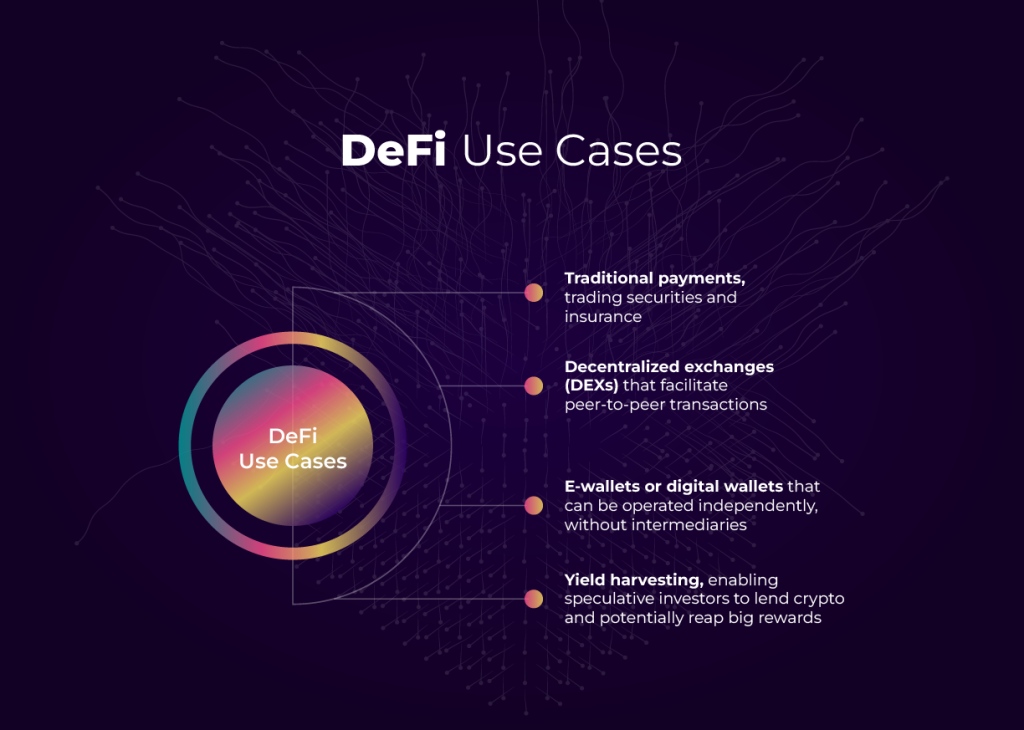The Role of Oracles in DeFi Applications sets the stage for an exciting exploration of how these crucial components bridge the gap between blockchain networks and real-world data. Oracles serve as the backbone of decentralized finance (DeFi), enabling smart contracts to access off-chain information that is vital for executing transactions and agreements. As the DeFi ecosystem continues to evolve, understanding the significance of oracles becomes essential for grasping their impact on financial markets and innovative solutions.
This discussion delves into how oracles work, the different types available, and the challenges they face in maintaining accuracy and reliability. By shedding light on their functionality and importance, we aim to provide a comprehensive overview of the transformative role oracles play in enhancing the potential of DeFi applications.
In today’s fast-paced world, the significance of mental wellness has gained unprecedented attention. As individuals navigate the complexities of daily life, maintaining mental health has become crucial not only for personal well-being but also for overall productivity and societal harmony. This article will delve into various aspects of mental wellness, offering insights, strategies, and resources that can aid in fostering a robust mental state.To begin, it’s essential to define mental wellness.
It refers to a state of well-being where individuals recognize their abilities, can cope with the normal stresses of life, work productively, and contribute to their communities. Mental wellness is not solely the absence of mental illness; rather, it encompasses a broader perspective that includes emotional, psychological, and social well-being.One of the cornerstone elements of mental wellness is self-awareness. Understanding one’s emotions, thoughts, and behaviors can significantly impact overall mental health.
Self-awareness allows individuals to identify stressors and triggers, facilitating better coping mechanisms. Practicing mindfulness and engaging in self-reflection can enhance one’s self-awareness, leading to improved emotional regulation.Moreover, it’s crucial to acknowledge the role of physical health in mental wellness. Regular physical activity has been shown to reduce anxiety and depression. Engaging in exercises, whether it be a brisk walk, yoga, or team sports, releases endorphins—natural mood lifters that help combat stress.

A balanced diet also plays a vital role. Nutrient-rich foods can positively influence mood and energy levels, providing the body with the necessary fuel to function optimally.In addition to physical health, social connections significantly impact mental wellness. Humans are inherently social beings, and fostering relationships can provide emotional support during challenging times. Whether through family, friends, or community groups, maintaining healthy relationships can buffer against the effects of stress and enhance overall happiness.
It is essential to invest in these connections—spending quality time with loved ones, engaging in community service, or even participating in group hobbies can strengthen social ties.Another vital aspect to consider is the importance of work-life balance. In our modern society, the lines between work and personal life often blur, leading to burnout and increased stress levels. Establishing boundaries is imperative.
Individuals should prioritize their time, ensuring that they allocate moments for relaxation and self-care. This could mean setting aside time for hobbies, pursuing interests, or simply unwinding at the end of a long day. Learning to say no when necessary can also help maintain this balance.When discussing mental wellness, it is impossible to overlook the significance of professional help. Mental health professionals, such as therapists or counselors, play a crucial role in offering support and guidance.
Seeking help is a sign of strength, not weakness. Therapy provides a safe space for individuals to express their feelings, gain insights, and develop coping strategies. It’s important to remember that everyone has their unique journey, and there is no one-size-fits-all solution for mental wellness.In recent years, the stigma surrounding mental health has begun to diminish, thanks to advocacy and awareness campaigns.
However, societal pressures and misconceptions still hinder many from seeking help. Education and open conversations about mental health can further reduce this stigma. Sharing personal experiences, discussing mental health openly, and encouraging others to seek help can foster a more supportive environment for those struggling.Additionally, digital resources have emerged as valuable tools for promoting mental wellness. Numerous apps offer guided meditations, mood tracking, and stress management techniques, enabling individuals to prioritize their mental health conveniently.
Online platforms also provide access to virtual therapy sessions, expanding the reach of mental health resources to those who may not have access otherwise.As we navigate through life’s challenges, developing resilience is vital for maintaining mental wellness. Resilience allows individuals to bounce back from adversity, adapt to change, and grow from experiences. Building resilience can be achieved through cultivating a positive mindset, focusing on strengths, and maintaining a solution-oriented approach to problems.
Engaging in activities that promote personal growth, such as learning new skills or pursuing hobbies, can also enhance resilience.Moreover, practicing gratitude can significantly impact mental well-being. Taking time to acknowledge and appreciate the positive aspects of life can foster a sense of fulfillment and contentment. Simple practices such as keeping a gratitude journal or sharing moments of gratitude with others can shift perspectives and improve overall mental health.In conclusion, mental wellness is an essential facet of overall health that deserves attention and care.
By prioritizing self-awareness, physical health, social connections, work-life balance, and seeking professional help when needed, individuals can foster a healthier mental state. As society continues to evolve, it is imperative to advocate for mental wellness, reduce stigma, and promote resources that empower individuals to take charge of their mental health. The journey to mental wellness is unique for everyone, and embracing it with an open heart and mind can lead to a more fulfilling and balanced life.



